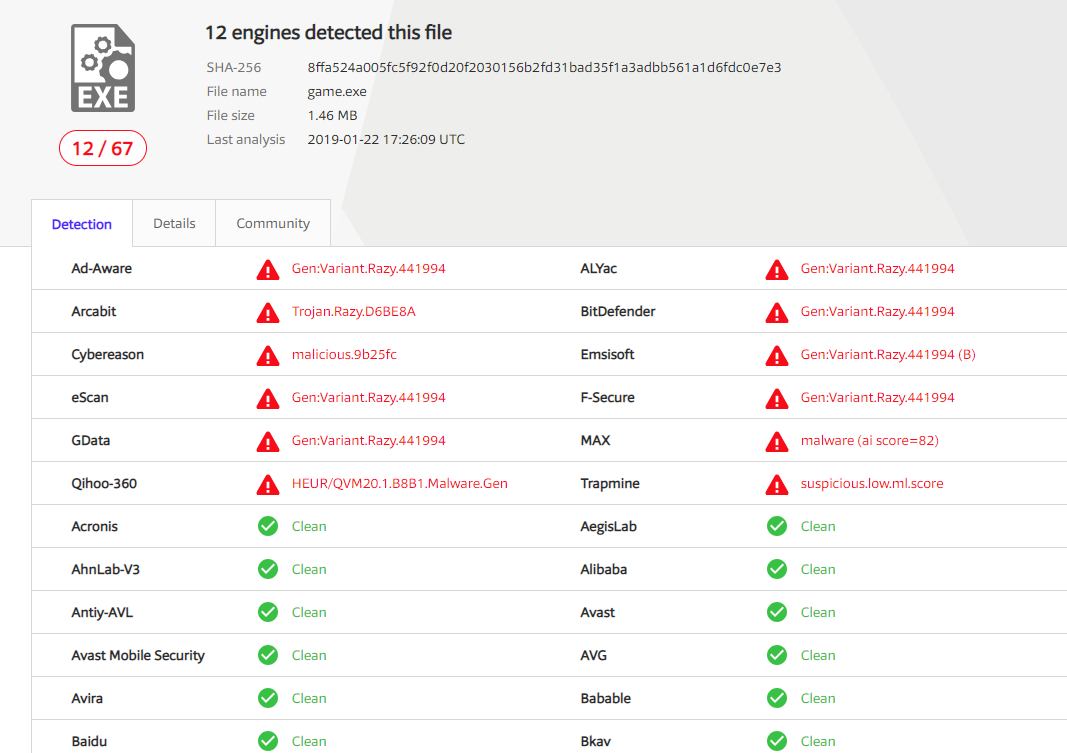Hi!
Using visual studio c++ 2017 for my games. I found a malware in one of my projects. Cleaned it. The folder has no malware, but when I recompile the game the new exe-file has the malware again!
I have cleaned all my harddrives from the malware (it was found on some places) but it still reappears when I recompile that project.
NOTE: I can recompile any other project, those exe files doesnt contain any malwere. It's only this one project...
For reference I found it with EMSISOFT and it calls it "Gen:Variant.Razy.441994 (B).
Im using win 10.
Thanks for any help on this strange issue!
Erik






